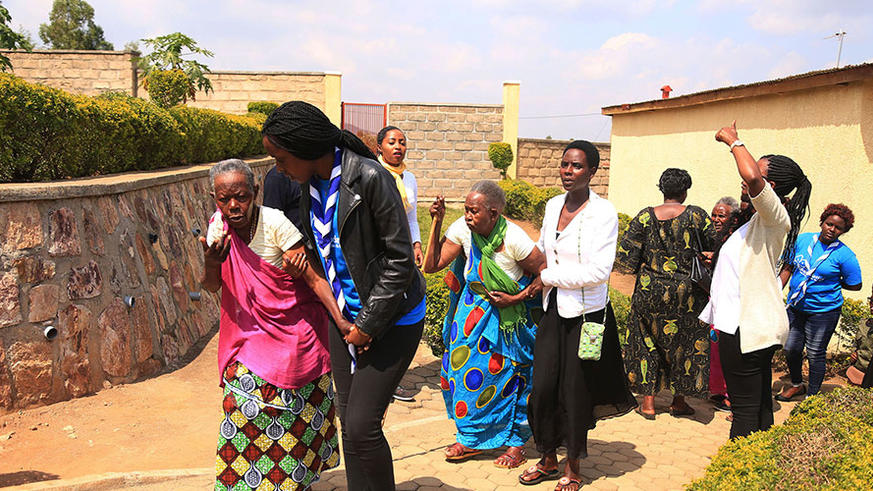
Youth survivors rally peers to push back against genocide denial ideology
By Michel Nkurunziza, The New Times
Rwandan Graduates Genocide Survivors Organisation (GAERG) and the Association of Student Survivors of the Genocide (AERG) have embarked on the activities to be undertaken from February 23 to April 5, 2021 ahead of 27th commemoration of 1994 genocide against the Tutsi.
Rwandan Graduates Genocide Survivors Organisation (GAERG) and the Association of Student Survivors of the Genocide (AERG) have embarked on the activities to be undertaken from February 23 to April 5, 2021 ahead of 27th commemoration of 1994 genocide against the Tutsi.
“Coping with effects caused by the 1994 genocide against the Tutsi and fighting genocide deniers requires persistence. As youth, we should continuously engage in such a fight as we wish for a peaceful country. We should join our efforts in undertaking different activities organized in AERG – GAERG Week,” he said.
After 27 years having experienced 1994 Genocide against the Tutsi, we laud Inkotanyi that stopped genocide and continued to restore survivor’s hope. The 27th commemoration of genocide period that is coming soon requires us to keep in mind that we have responsibilities to build bright future for Rwanda, added Egide Gatari, GAERG president.
The aim of the Association of Student Survivors of the Genocide (AERG) and Rwandan Graduates Genocide Survivors Organisation (GAERG) is coping with effects caused by 1994 Genocide against the Tutsi among the survivors, promoting their welfare, fighting discrimination and genocide.
Since the inception of AERG – GAERG Week on March 7, 2015, its dedicated activities have constructed 38 houses for survivors and 1,000 kitchens to promote good nutrition.
The members have also provided 39 cows to vulnerable people including survivors of 1994 Genocide against the Tutsi, those who played role in liberating the country and protectors of friendship pact who rescued Tutsi during genocide.
The group also played role in cleaning genocide memorial sites across the country and different talks about 1994 Genocide against the Tutsi, fighting genocide and denial as well as healing trauma
